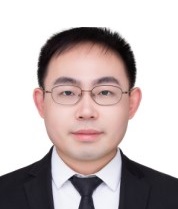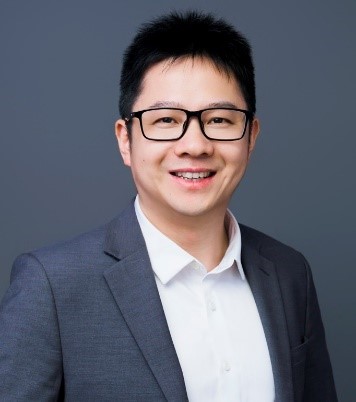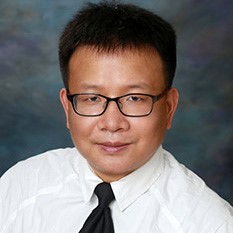Advanced Technologies for Security, Privacy, Safety, and Regulation of AI-generated Content
Published 27 January, 2026
Recently, the remarkable progress of generative AI models, such as large language models (LLMs), text-to-image generators, voice synthesizers, and video deepfakes, has profoundly reshaped how digital content is created, consumed, and distributed. These technologies are now widely deployed in domains ranging from education, journalism, and entertainment to personalized healthcare and autonomous systems. However, the democratization of generative AI has introduced critical challenges concerning security, privacy, trust, safety, and accountability.
AI-generated content has been exploited to spread misinformation, impersonate individuals, conduct fraud, and infringe on copyright and data protection laws. Meanwhile, the sheer volume and realism of synthetic content raise growing concerns about transparency, authorship, and public trust. In response to these emerging risks, governments and regulatory bodies around the world have introduced or proposed targeted legislation. For example, China’s recently released “Measures for the Administration of AI-Generated Content Labeling” mandates that synthetic content, especially those that may mislead or cause public confusion, must be clearly labeled, establishing a regulatory precedent in Asia for content provenance and user awareness.
This special issue aims to bring together interdisciplinary research and innovative technologies that ensure AI-generated content is secure, privacy-preserving, ethically aligned, legally compliant, and socially beneficial. We invite contributions from the fields of artificial intelligence, cybersecurity, cryptography, human-computer interaction, law, software engineering, and social science to advance both the theoretical foundations and practical safeguards in this critical area. We particularly encourage submissions focused on labeling mechanisms, robust watermarking, content verification, adversarial resilience, data governance, and regulation-aware system design. Papers may address technical innovations, system architectures, compliance frameworks, systemization of knowledge, or empirical studies that examine societal impacts and policy implications.
Through this special issue, we aim to foster a deeper understanding of the risks, responsibilities, and opportunities associated with AI-generated content, while accelerating the development of trustworthy, transparent, and human-centered generative AI ecosystems.
Topics:
- Advanced detection technologies of AI-generated text, images, audio, code, and video
- Robust watermarking, fingerprinting, and content attribution technologies for AI-generated content
- Security and privacy-preserving generative model training against attacks
- Advanced defense mechanisms against malicious prompt injection and model jailbreak attacks
- Adversarial robustness and failure case analysis approaches of LLMs and diffusion models
- Risk assessment and red-teaming policies of generative AI systems
- Advanced technologies for ethics, fairness, and social responsibility of AI-generated content
- Societal impacts of synthetic media (e.g., misinformation, identity manipulation)
- Secure generative AI for education, healthcare, finance, networking, manufacturing, government, etc.
- Multimodal content generation (text-image-audio-video) and cross-modal verification
- Advanced technologies for regulation, governance of AI-generated content
- Benchmark datasets and evaluation metrics for ethical, robust AI-generated content
Timeline:
Submission deadline: March 31, 2026
Acceptance deadline: May 31, 2026
Publication date: September 30, 2026
Guest Editors:

Jianbing Ni
Associate Professor, Department of Electrical and Computer Engineering, Queen’s University, Canada
Email: jianbing.ni@queensu.ca
Dr. Jianbing Ni is currently an Associate Professor in the Department of Electrical and Computer Engineering at Queen's University, Canada, and the Tier-2 Canada Research Chair in Intelligent System Security and Privacy. His research interests include mobile network security, large language model (LLM) safety, trustworthy artificial intelligence, cloud/edge computing security, and blockchain technology. He has published over 120 papers in IEEE Transactions and highly selected conferences. He has received 9 best paper awards from international conferences, including IEEE GLOBECOM, ICC, MASS, SECURECOMM, and the Best Paper Award for IEEE Transactions on Mobile Computing in 2022, the IEEE Vehicular Technology Society Early Career Award in 2022, the IEEE Technical Committee on Scalable Computing Award for Excellence in Scalable Computing (Early Career Researchers) in 2023, the IEEE ComSoc Communications & Information Security Technical Committee (CISTC) 2024 Early Career Award. He is serving as an associate editor for 6 prestigious journals, including IEEE TIFS, IEEE TDSC, and IEEE Systems Journal.

Cheng Huang
Associate Professor, Department of Computer Science, Fudan University, China
Email: chuang@fudan.edu.cn
Dr. Cheng Huang received the Ph.D. degree in electrical and computer engineering from the University of Waterloo, ON, Canada, in 2020. From 2020 to 2023, he was a Postdoctoral Research Fellow with the Department of Electrical and Computer Engineering, University of Waterloo. He is currently an Associate Professor with the Department of Computer Science, Fudan University, Shanghai, China. His research interests include data privacy, AI security, and trustworthy intelligent systems. He has authored over 80 peer-reviewed articles in premier journals and conferences, including IEEE TDSC, IEEE JSAC, and AAAI. His publications have received over 2,300 citations, with an h-index of 28, according to Google Scholar. Dr. Huang serves as an Associate Editor for several international journals, including IEEE TDSC, IEEE IoTJ, and Springer PPNA. He was the Symposium Co-Chair of IEEE GLOBECOM 2024, Guest Editor for Security and Safety (S&S), and Publicity Chair for ICA3PP 2022 and PST 2023. He received four Best Paper Awards at international conferences, including IEEE ICC, GLOBECOM, and ICCC. He also serves as a Board Governor Representative of the IEEE Blockchain Technical Committee.

Wenchao Xu
Assistant Professor, Division of Integrative Systems and Design, Hong Kong University of Science and Technology, China
Email: wenchaoxu@ust.hk
Dr. Wenchao Xu received the B.E. and M.E. degrees from Zhejiang University, Hangzhou, China, in 2008 and 2011, respectively. He received the Ph.D. degree with the Department of Electrical and Computer Engineering, University of Waterloo in 2018. He is currently an Assistant Professor in the Division of Integrative Systems and Design at the Hong Kong University of Science and Technology (HKUST), China. In 2011, he joined Alcatel Lucent Shanghai Bell Co. Ltd., where he was a Software Engineer for telecom virtualization. He has published over 100 research papers at top-tier journals including Proceedings of IEEE, IEEE Transactions on Parallel and Distributed Systems, IEEE Transactions on Mobile Computing, and prestigious conferences including IEEE/CVF CVPR, ICML, NeurIPS, IEEE INFOCOM, IEEE ICDCS, etc. His research areas include mobile computing, AI enabled networking, multimodal learning and Internet of vehicles.

Yue Zhang
Professor, School of Computer Science and Technology, Shandong University, China
Email: zyueinfosec@sdu.edu.cn
Dr. Yue Zhang is a Professor at Shandong University. Before joining Shandong University, he was Assistant Professor at Drexel University’s Computer Science department. His research primarily focuses on system security, specifically in the areas of IoT Security and LLM security. He has published more than 60 papers in security conferences (19 papers in big four) and journals (e.g., TDSC, TPDS). He received the Distinguished reviewer at NDSS, the Best Paper Honorable Mention Award at ACM CCS 2022, and the Best Paper Award at 2019 IEEE International Conference on Industrial Internet. He has also served on the organization committees of the conferences (e.g., general chair of EAI ICECI, track chair for IEEE MSN and IEEE MASS) and technical program committee of the conferences (e.g., USENIX Security, NDSS, ACM CCS). He serves as an Associate Editor for IEEE T-IFS, HCC and Editor Member of the Blockchain Journal, Electronics Journal, and CMC. His research had led to the discovery of many vendor-acknowledged vulnerabilities, such as by Bluetooth SIG, Apple, Google, and Texas Instruments, and had attracted intense media attention such as Hacker News, and Mirage News.

Rongxing Lu
Professor, School of Computing, Queen’s University, Canada
Email: rongxing.lu@queensu.ca
Dr. Rongxing Lu is a full Professor at Queen's School of Computing. Previously, he served as the Acting Director of the Canadian Institute for Cybersecurity (CIC), held the Mastercard IoT Research Chair, and was a professor in the Faculty of Computer Science at the University of New Brunswick (UNB). Before that, he was a tenure-track assistant professor at the School of Electrical and Electronic Engineering, Nanyang Technological University (NTU), Singapore, from April 2013 to August 2016. Rongxing Lu worked as a Postdoctoral Fellow at the University of Waterloo from May 2012 to April 2013. He was awarded the most prestigious “Governor General’s Gold Medal”, when he received his PhD degree from the Department of Electrical & Computer Engineering, University of Waterloo, Canada, in 2012; and won the 8th IEEE Communications Society (ComSoc) Asia Pacific (AP) Outstanding Young Researcher Award, in 2013. Dr. Lu is an IEEE Fellow. His research interests include IoT-Big Data security and privacy, privacy enhancing technologies, and applied cryptography. He has published extensively in his areas of expertise with H-index 95 and citations 40,000+ from Google Scholar as of June 2025, and was the recipient of 10 best (student) paper awards from some reputable journals and conferences. Dr. Lu served/ serves as the Chair of 2022-2023 IEEE ComSoc CIS-TC (Communications and Information Security Technical Committee), and the founding Co-chair of IEEE TEMS Blockchain and Distributed Ledgers Technologies Technical Committee (BDLT-TC). Dr. Lu is an IEEE ComSoc Distinguished Lecturer (2024-2025). Dr. Lu is the Winner of 2016-17 and 2023-24 Excellence in Teaching Award in FCS, UNB.